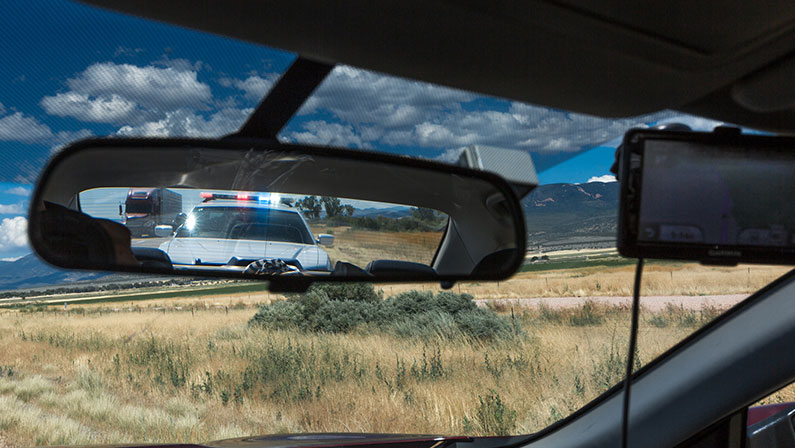Law Enforcement Officers around the United States understand that being stopped by law enforcement can be a stressful situation for the driver. Deputies are tasked with enforcing the numerous traffic laws and regulations enacted by the different legislative bodies of our government. Our main goals for traffic enforcement are to ensure that drivers operate their vehicles in a safe manner in an effort to:
- Reduce the number of motor vehicle crashes we investigate.
- Reduce the severity of those motor vehicle crashes and to limit personal injury from them.
- Make sure the vehicles on the road are safe, and subsequently not a danger to others.
- Make sure vehicles are not being driven by impaired drivers, or those people committing a crime.
Traffic stops are inherently dangerous for police officers. Many officers are injured every year from other motorists while officers are conducting a “routine” traffic stop. We therefore train our officers to NOT treat a traffic stop as a “routine” procedure. We also offer the following tips to make traffic stops smoother and safer for all involved.
When you are aware that a deputy has activated his emergency lights and siren:
- Acknowledge the command promptly. Signal that you are going to pull over and do so as soon as you can safely manage it.
- Pull off the road as far as possible or pull into the nearest driveway or parking lot.
- This demonstrates a concern for the officer’s safety.
- You should turn off your vehicle, but you can leave the keys in the ignition.
- After you have stopped your vehicle, remain inside and wait for the officer to approach you.
- Any sudden movement of the door or people in the car can make a deputy uneasy, so tell passengers to also remain seated.
- If you are stopped when it is dark outside, it is acceptable and encouraged that you turn on the interior dome light of your vehicle.
- A deputy will typically ask for identification and other information. This usually includes a driver’s license, proof of insurance card, and the car’s registration.
- If you must reach into a glove compartment or console panel to get these documents, tell the deputy what you are doing.
- Otherwise, place your hands on the steering wheel.
- Answer any questions honestly and be respectful, and ask any questions you may have based on what the police officer tells you.
- It is important to remain honest, however, when answering the deputy’s questions. You should answer simple questions like “Where are you headed?” or “Is this your current address?” truthfully.
- Keep your answers simple and to the point.
- You can choose to contest a ticket later without raising issues about unfairness during a traffic stop.
- Once a deputy has collected all the pertinent information from you, he or she is likely to return to the police car. There may be a substantial delay until he or she returns.
- The officer has a protocol to follow during a traffic stop, which includes a search for outstanding warrants and verification of your identity.
- These procedures can be time-consuming.
- If the officer issues you a citation, then listen carefully to what he or she says and ask questions if needed
- In most cases, the citation should include a court date, along with a means of waiving the court appearance and paying the fine directly.
- Signing a citation is only an acknowledgement that you have received the ticket.
- After you have been released from the vehicle stop, signal your intention to enter into the roadway and do so with due regard and only when it is safe to re-enter the roadway.
- Do not let the outcome of the traffic stop interfere with your ultimate destination. Your safety on the roadways is important to us and we want you to arrive safely.
Your Rights during a Traffic Stop
There are instances where deputies can legally search your vehicle without your permission. In other situations, you may be asked for permission by an officer to search your vehicle. Under those circumstances, you have the right to refuse, and the officer will not be allowed to search your vehicle.
Although you are required to provide your identity and other licensing documents, you do not have to admit guilt of any crime. You have the right to be treated fairly and impartially, and the right not be stopped based on “profiling” due to race, nationality, or any other such grouping.
